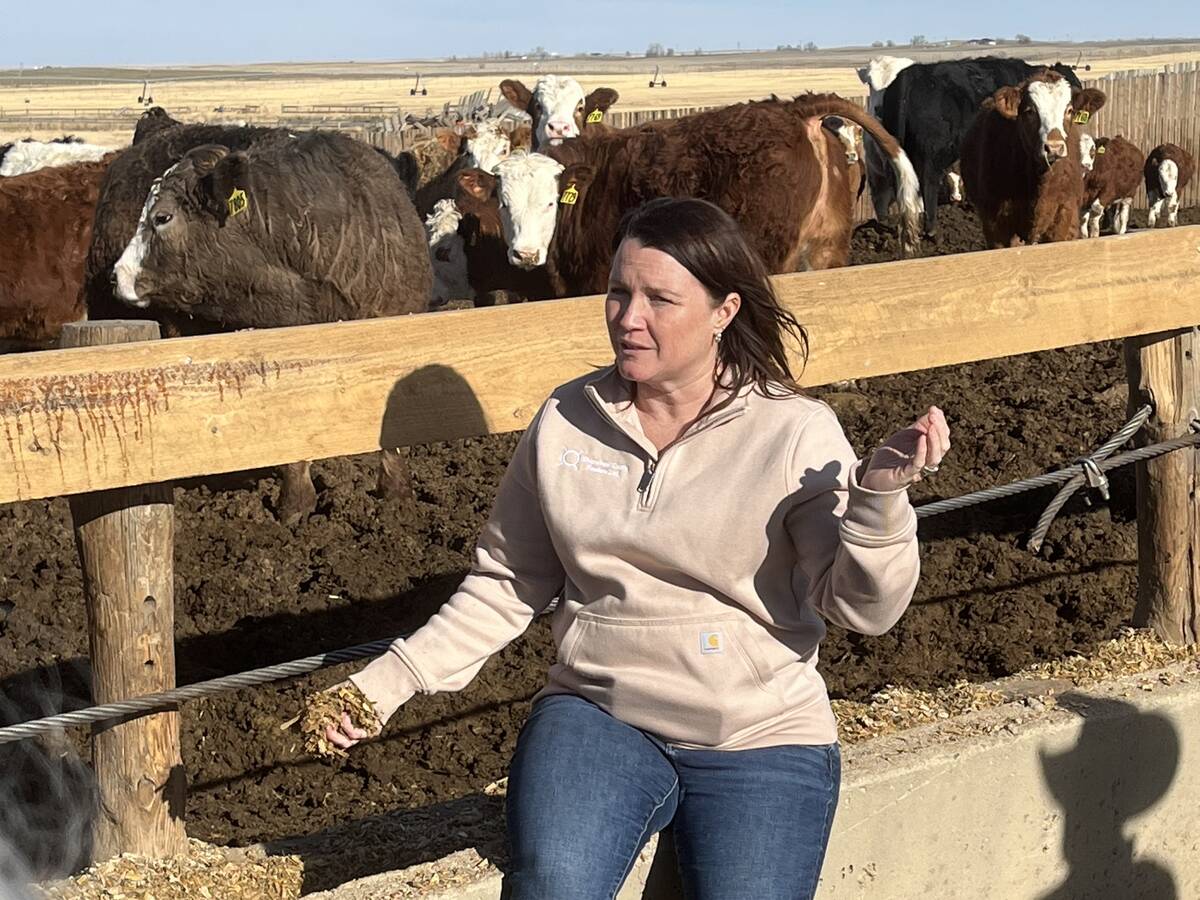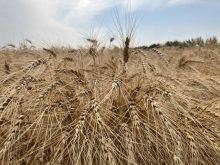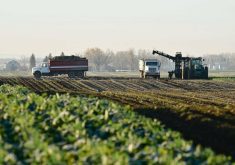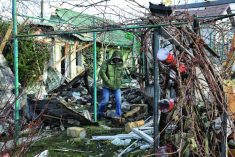A kamikaze drone flew over our house last night. It fell near our fence and exploded. I looked out the window and saw a red flame. Then I opened my eyes and realized it was a nightmare.
In the morning, I called my mother. She said she heard a drone over our town at 3 a.m. These soulless killing machines, which carry 100 pounds of explosives, are called “motorbikes” because of their distinctive sound. I heard just such a “motorbike” in a nightmare, and my imagination painted an explosion.
Daily shelling has turned into everyday life for Ukrainians. If earlier we impatiently read military reports every morning about the number of downed missiles and kamikaze drones, today we accept these attacks as a part of our lives.
Read Also

Roots of Resilience: The 50-year evolution of Shipwheel Cattle Feeders
Alberta’s Shipwheel Cattle Feeders is one of Canada’s pioneers in holistic regenerative agricultural practices.
We once thought the enemy would soon run out of missiles, but now we understand this is not the case. Putin will sell his last shirt to buy more ammunition to kill Ukrainians.
Aerial terror has intensified and today is primarily aimed at the agricultural sector. A good grain harvest is expected in Ukraine this year, so the Russians are targeting ports and large elevators. In the southern regions, they purposefully launch rockets at farms.
Until recently, there was a weak agreement on limited export of grain from Ukraine through the Black Sea. The Russians violated it and began to destroy the port infrastructure of Ukraine. The main purpose of this is clear: to blackmail the world again with hunger in the poor countries of Africa and Asia.
Instead, Putin offers to export the grain stolen in Ukraine.
Shelling does not stop in Ukrainian cities and villages near the front line. Many people still live there who did not want to leave their homes. I cannot imagine how they manage to survive without electricity, gas and communication, and with the risk of death every day.
I don’t want to sound ungrateful, but like most Ukrainians, I do not understand why the West is slow to provide us with modern air defence systems and aircraft that can shoot down enemy missiles and drones. It would save the lives of dozens of people every day.
Things are not easier at the front, either. A week ago, I saw my classmate Oleh on the main street of our city. He is fighting for the second year in a row.
This lively guy constantly squinted while talking to me and then admitted he could hardly see. This is the result of constant lack of sleep and ammunition explosions. He has two small children at home, and they have just seen their father for the first time since the war began.
However, life goes on. War uproots people from their usual environment, but those who remain must work to bring victory closer and ensure a normal life for children. We have factories, shops and cafes, charity concerts and football matches.
Just like a thousand years ago, the Ukrainian peasant goes to the field, no matter what. For many, agriculture has become a kind of relaxation, a way to forget the war for a few hours.
We had wonderful rains in July and my soul rejoices when I look at my half acre of vegetable garden. Every day we harvest bags of cucumbers, zucchini and tomatoes, pick berries and prepare to harvest potatoes and corn.
For Ukrainian women, this is a particularly responsible period, because according to tradition, they preserve vegetables and fruits and prepare food supplies for their children and grandchildren. The men cut and chop firewood and look after the fields.
It can be difficult, especially when it is constantly raining and weeds are growing in front of your eyes. We deliberately do not use herbicides on our small fields. In the evenings, you can often see whole families in their gardens. It would be a shame in front of your neighbours if your garden is overgrown with weeds.
Farmers who cultivate hundreds and thousands of hectares should also be happy about a good harvest, but this is not the case. Due to cancellation of the Black Sea shipping agreement, farmers will not be able to sell. The railway will not be able to transport even a third of the crop grown in Ukraine.
This means the price of grain, especially corn, will again drop to a minimum. Farmers will have to harvest with tears in their eyes, and sometimes just leave crops in the field.
The thing is, you will be offered C$110 for one tonne of corn, but to harvest, transport and dry it costs $146. The precious grain will be eaten by wild animals and birds, and in the best case, it will be picked by the peasants so the food does not disappear.
On the other hand, this year Ukrainian farmers sowed more rapeseed, sunflower and soybeans. The harvest of these oil crops is much easier to sell to Europe, or at least it can be processed into oil at an additional profit. Corn and wheat are losing their former popularity.
Farmers who took care of the infrastructure on their farms before the war or were able to do something after the war feel the best — those who own granaries, dryers, mini-factories, repair shops and livestock facilities and who have their own tractors and harvesters.
I advise Canadian farmers to pay attention to this. Thankfully, I’m not talking about war in Canada, but any crisis is better experienced with your own infrastructure, from granaries to diesel generators.
You can work for a long time without mineral fertilizers and expensive pesticides, but you will not be able to manage without a good harvester, electricity and a granary.
August in Ukraine is the month of farmers and schoolchildren. Farmers are starting to harvest and plant winter crops, hoping to get a few days off in December. In the morning, the air still smells of fresh greens and apples, and you feel that cold nights will begin in two or three weeks.
Children and teachers are preparing for the start of school on Sept. 1. For us, it turned into a painful topic. My son has entered Grade 10, but the last time he studied normally was in Grade 6. First there was the coronavirus, and then the war.
We really hope our children will be able to go to school and sit in classrooms but this is just a dream for now.
It is difficult to predict what will happen in coming months. Ukrainian soldiers hold back the enemy and gradually liberate one village after another. There are thousands of square miles of land completely mined, with not a single building left intact.
I can’t imagine how these fields, forests and settlements will be de-mined and when people will return to live there. Everything is destroyed and every second of being on the front line can bring death.
But we live and do not want to die. I know many famous politicians would like Ukraine to surrender and then, they say, peace will come. However, such an option is an illusion. At one time, international politicians also wanted to appease Hitler with territorial concessions, but the monster only increased his appetite.
I believe this Russian monster will one day be suffocated by Ukrainian soil and grain and will no longer threaten the entire civilized world.















